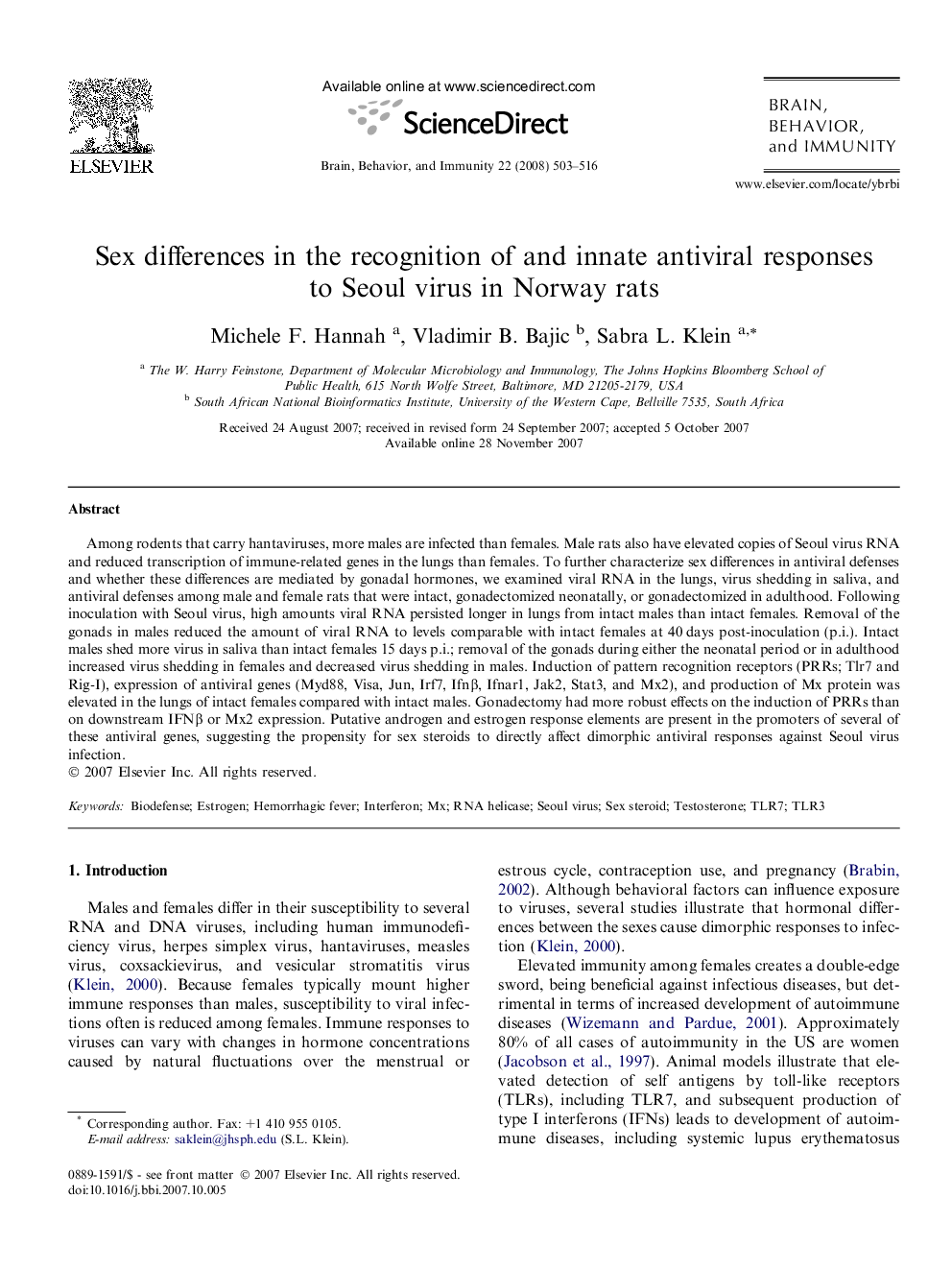| Article ID | Journal | Published Year | Pages | File Type |
|---|---|---|---|---|
| 923138 | Brain, Behavior, and Immunity | 2008 | 14 Pages |
Among rodents that carry hantaviruses, more males are infected than females. Male rats also have elevated copies of Seoul virus RNA and reduced transcription of immune-related genes in the lungs than females. To further characterize sex differences in antiviral defenses and whether these differences are mediated by gonadal hormones, we examined viral RNA in the lungs, virus shedding in saliva, and antiviral defenses among male and female rats that were intact, gonadectomized neonatally, or gonadectomized in adulthood. Following inoculation with Seoul virus, high amounts viral RNA persisted longer in lungs from intact males than intact females. Removal of the gonads in males reduced the amount of viral RNA to levels comparable with intact females at 40 days post-inoculation (p.i.). Intact males shed more virus in saliva than intact females 15 days p.i.; removal of the gonads during either the neonatal period or in adulthood increased virus shedding in females and decreased virus shedding in males. Induction of pattern recognition receptors (PRRs; Tlr7 and Rig-I), expression of antiviral genes (Myd88, Visa, Jun, Irf7, Ifnβ, Ifnar1, Jak2, Stat3, and Mx2), and production of Mx protein was elevated in the lungs of intact females compared with intact males. Gonadectomy had more robust effects on the induction of PRRs than on downstream IFNβ or Mx2 expression. Putative androgen and estrogen response elements are present in the promoters of several of these antiviral genes, suggesting the propensity for sex steroids to directly affect dimorphic antiviral responses against Seoul virus infection.
